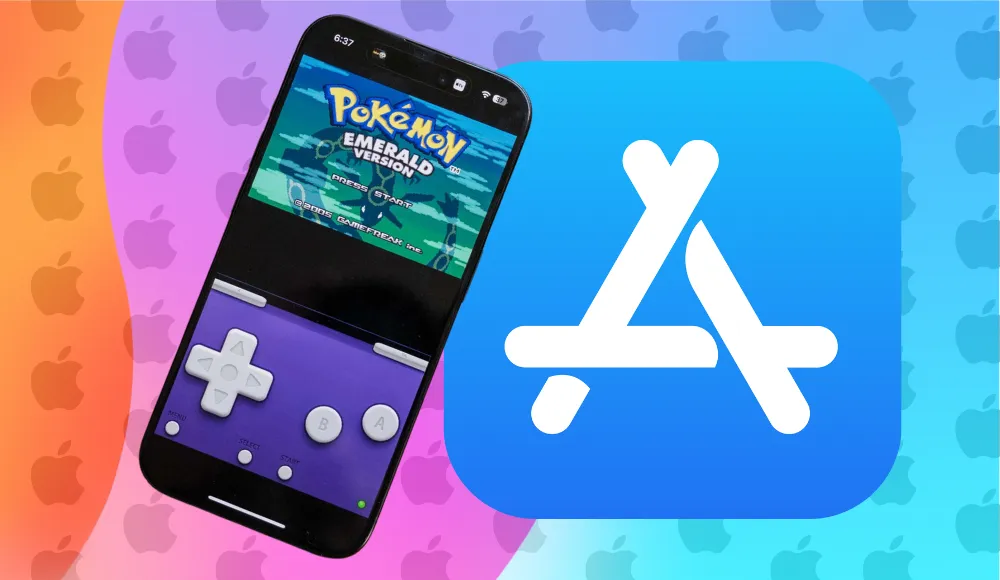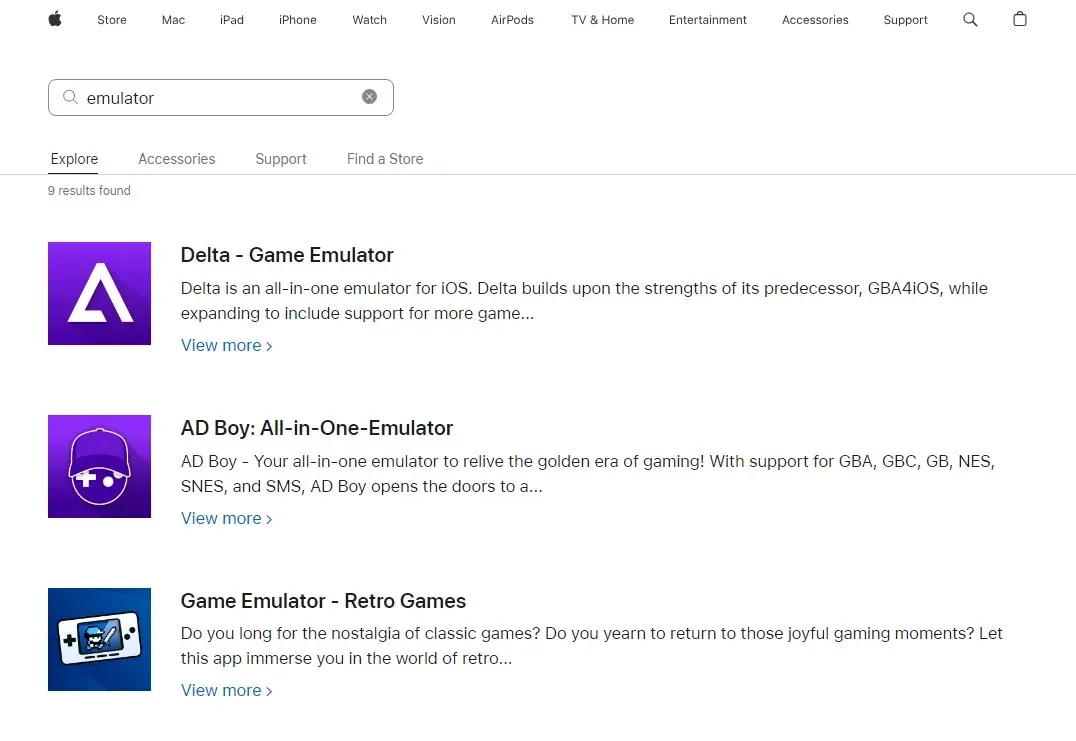Emulators are now on the App Store
The day has finally come! Let's dissect the story together.

Exciting news for retro gamers and iPhone users alike - emulators are finally allowed on the App Store! After years of waiting and missing out on the fun, Apple has relaxed its rules and now users can enjoy playing classic games on their iPhones (without having to hack or modify their device). This is a major milestone for gaming on iOS and opens up a whole new world of possibilities.
Click here for the best iPhone emulators on the iOS App Store in 2024.
The App Store vs Emulators Discussion
The debate over allowing emulators on the App Store has been ongoing for years. Emulators are software programs that replicate a gaming console, allowing users to play games from various platforms on their devices. While some argue that emulators promote piracy by allowing users to play copyrighted games without purchasing them, others see them as a way to preserve gaming history and play beloved classics.
For a long time, Apple strictly prohibited emulators on the App Store, citing concerns about piracy and unauthorized software. This meant that iOS users had to resort to jailbreaking their devices or using third-party app stores to install emulators. However, this came with the risk of compromising the security and stability of their devices.
The change in Apple's policy
This decision was welcomed by many retro gaming enthusiasts who had been waiting patiently for an official way to play their favorite games like Pokémon Emerald on iOS devices. Apple's new guidelines state that emulators must adhere to a set of requirements to be accepted on the App Store. These include:
Legitimate licensing
Emulators must only provide access to games for which the user has legal ownership or permission from the copyright holder. This ensures that emulators on the App Store are not facilitating piracy or copyright infringement.
No game downloads
Emulators are not allowed to provide access to copyrighted games directly within the app. Users must have their own ROM files and transfer them onto the emulator. This requirement further promotes legal usage of emulators and prevents unauthorized distribution of copyrighted material.
Stable and secure
Emulators must meet Apple's strict standards for stability, security, and performance. This is great news because many of the unofficial emulator apps we had to use in the past were buggy at best, and outright broken at worst.
With official emulators available on the App Store, users can now confidently embrace nostalgia without worrying about the legality or safety of their gaming experience.
Apple's previous stance on emulators
Apple's previous stance on emulators was rooted in concerns about copyright infringement and piracy. The company believed that allowing emulators on the App Store could potentially enable users to play pirated games for free, which would be a violation of intellectual property rights.
Apple's strict policy against emulators led to many retro gaming enthusiasts seeking alternative methods to play their favorite games on iOS devices. Most of us were jailbreaking our phones, a process that removes software restrictions imposed by Apple, in order to install emulators from third-party sources.
Apple clearly want to remove our incentive to continue?hacking our phones, and allowing emulators is definintely a step in the right direction. But there could be trouble ahead.
Devs & Publishers vs Emulators
The impact of emulator apps on developers and game publishers is a topic that has sparked controversy and debate. On one hand, emulator apps can potentially increase exposure for older games that may have been forgotten or overlooked by current gamers. This can lead to renewed interest in these games and potentially generate additional revenue for developers and publishers through increased sales or downloads.
However, there is also the concern that emulator apps could cannibalize sales of remastered or re-released versions of older games. If users can easily access the original versions as well as unofficial mods through emulators, they may be less inclined to purchase and support official releases. This creates a potential conflict of interest between developers and emulator app creators.
To mitigate these concerns, some developers and game publishers have taken a proactive approach by officially releasing their own emulators or partnering with emulator app creators. This allows them to retain control over the distribution and monetization of their games, while also reaching a wider audience of retro gaming enthusiasts.
In some cases, developers may even release their games for free or at a reduced price on emulator platforms, as a way to generate interest and promote their brand. Win-win!
Author's Reflections
We're excited to see what the future holds for emulators on the App Store, but I don't think we're out of the woods yet. We should expect this new legalization to be heavily attacked by publishers and their copyright lawyers, especially if they start noticing a decline in revenue.
But for now, let's enjoy the nostalgia.
Popular Pages
Top 5 Sweepstakes Sites



